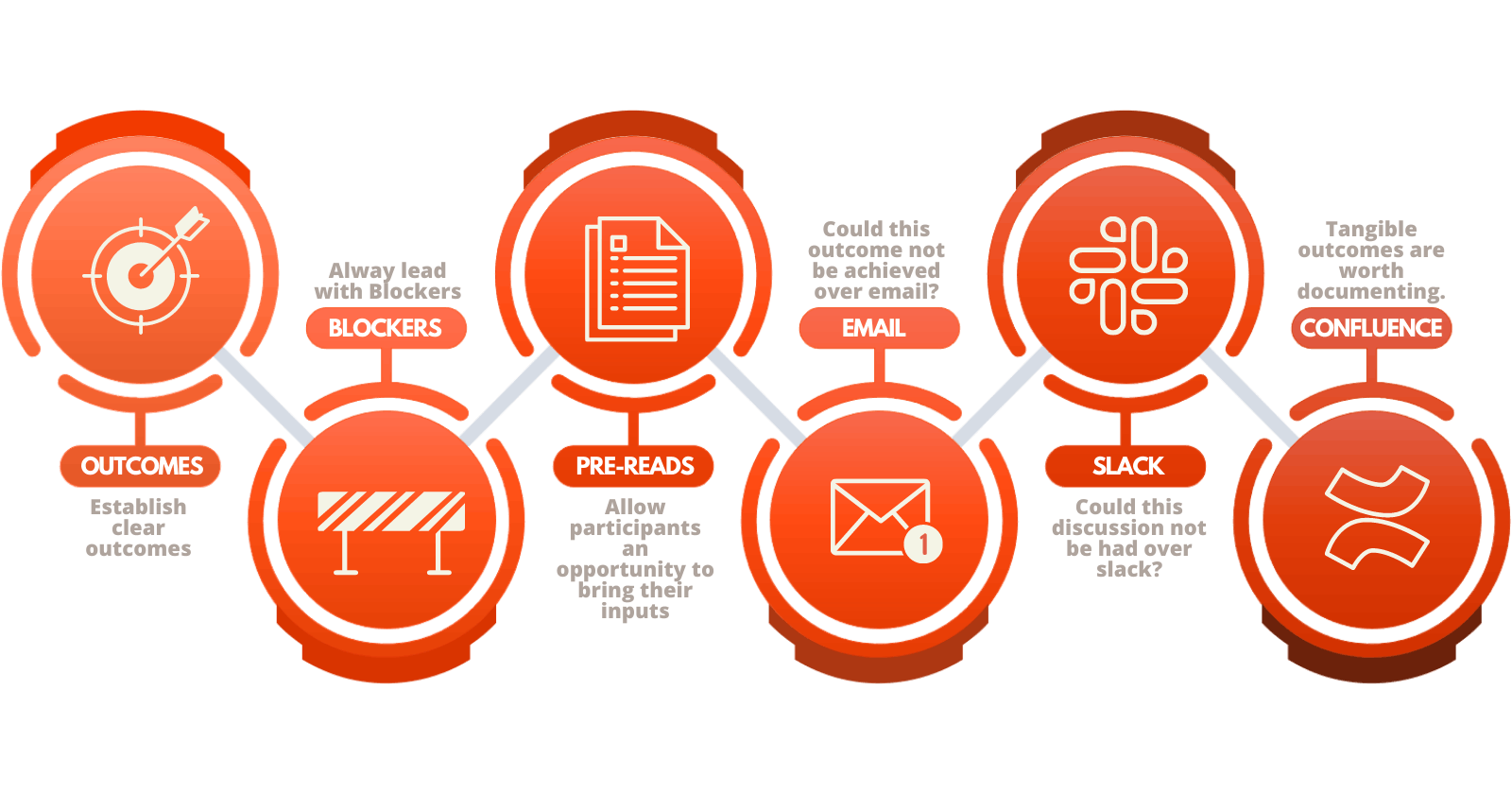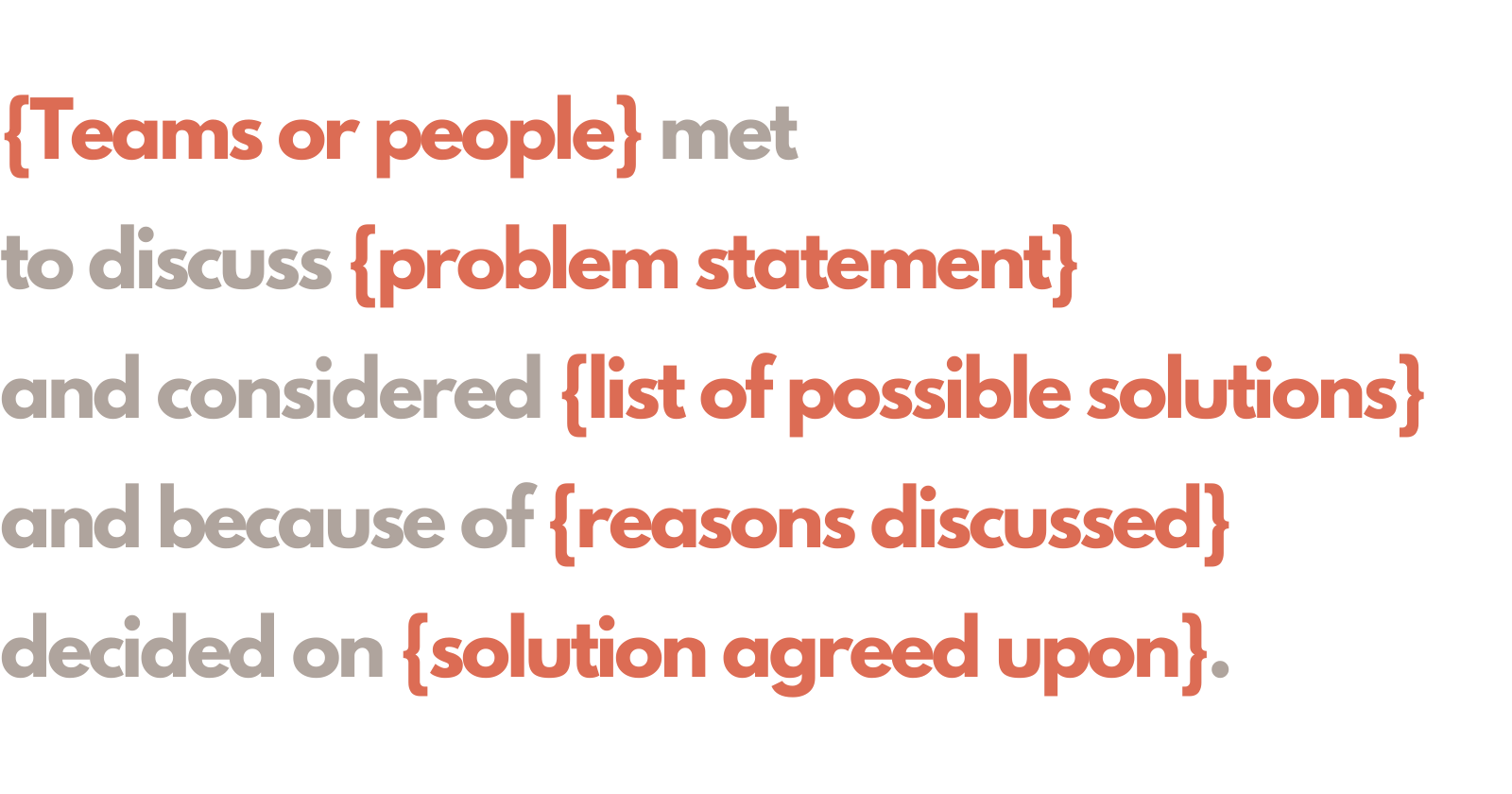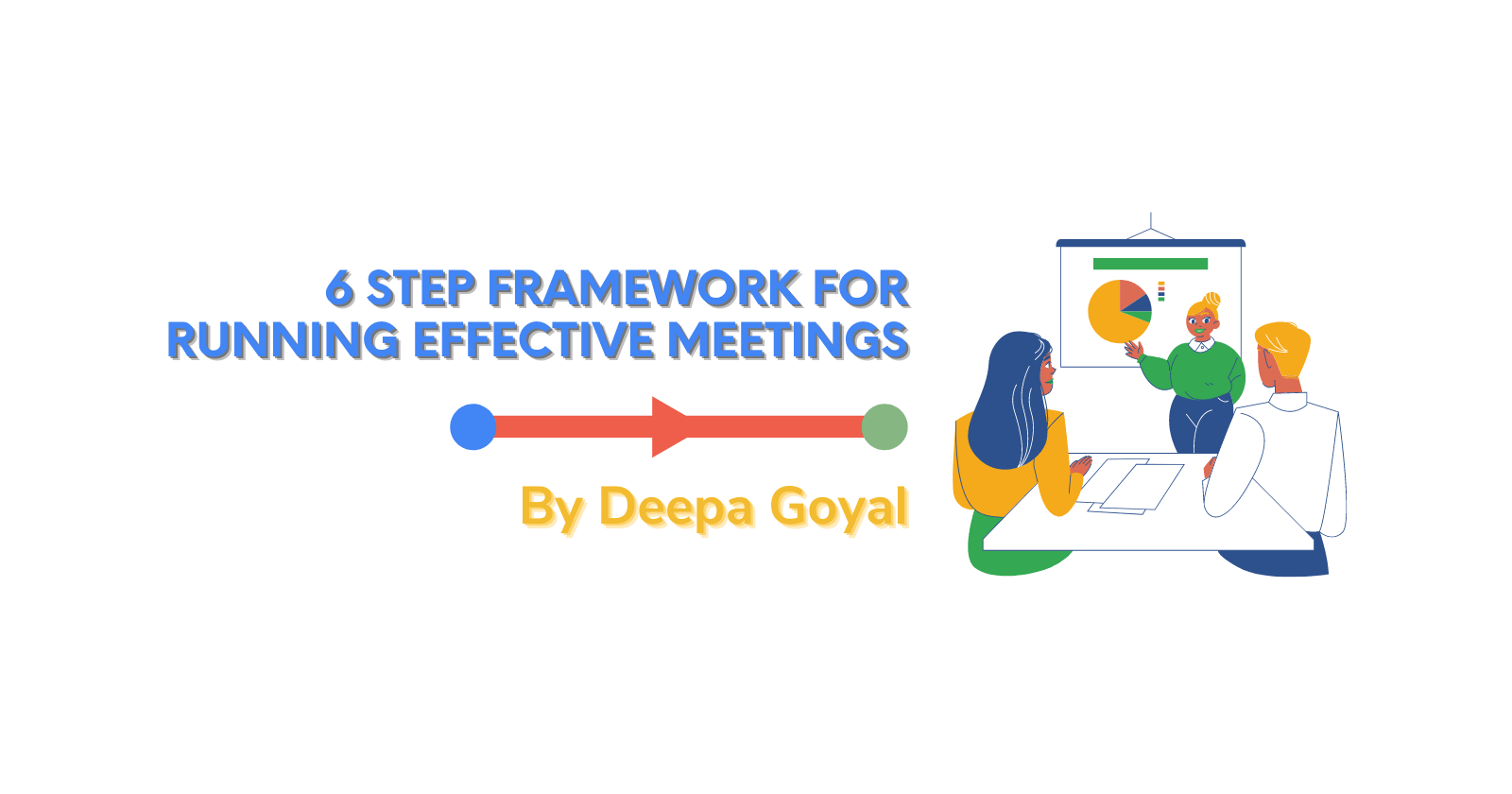A simple 6 step framework for running effective meetings
6 simple questions to ask every meeting to improve productivity and generate a wealth of knowledge base for your organization in the process.
As a product manager I am in meetings a lot. But I really enjoy doing focussed work and suffer from camera fatigue. I have some techniques that I have learnt from both pre-pandemic and pandemic life that have not just made meetings effective for me, but for my entire team.
I ask myself these questions for every meeting and it helps me not just run effective meetings but also feel prepared for the meeting and generate a tangible outcome from the meeting. When occasionally I feel like a meeting didn’t go as planned, I also use this framework to retrospect and understand what could be improved so I have specific feedback for myself, or specific ask of the someone else.

Define the problem statement and expected outcomes
This is the problem statement and subject of the meeting invite:
 If you can identify the who, what and why of a meeting, you can use this as a single sentence goal of the meeting and it will instantly get everyone on the same page. All invitees would instantly know:
If you can identify the who, what and why of a meeting, you can use this as a single sentence goal of the meeting and it will instantly get everyone on the same page. All invitees would instantly know:
- their role in this discussion
- how they are aligned with the goal
- what they need to do to prepare for this meeting.
What is blocking these outcomes?
The greatest way to have an effective discussion I have found is to make the opening slide the blockers slide. If it is a presentation, which it shouldn't be if the participants are all internal. Powerpoint presentations should only be used when at least one participant in the meeting is from outside the organization. For internal participants, wiki pages, dashboards, one pagers are far more effective both in terms of producing and consuming.
Is there pre-meeting reading material that can speed up the outcomes?
The goal shouldn't be to be the smartest person in the room, but to get the best outcomes. If people don't get the time to think about the topic before hand, they might need to think on the spot, or need more time to evaluate and unblock you. Give people the opportunity to do some pre-work offline, so that everyone can be effective in the discussion and nobody feels underprepared. There are some great techniques on preparing the pre-read material that are now widely known thanks to Amazon.
Could this meeting be an email?
This is a question we should ask before sending any meeting invite. And if you have pre-read material and outcomes established, this should be an easy question to answer. If you have shared the pre-read material its also possible that you get unblocked over email before you even send a meeting invite.
Could this email be a slack message?
Don't underestimate the power of IM. Even if you think the question is too big to answer, just try putting it out there, see if you can get some insights or inputs and if it goes out of hand, thats when you can end the thread with, "Let's meet and discuss."
Could this powerpoint be a confluence page?
This is the outcome and structure of your wiki page.
 If people were provided pre-read material, based on which decisions were made and outcomes were achieved - that's a valuable wiki page to inform all stakeholders and team members. This information is ready to leave powerpoint, so it is not lost.
If people were provided pre-read material, based on which decisions were made and outcomes were achieved - that's a valuable wiki page to inform all stakeholders and team members. This information is ready to leave powerpoint, so it is not lost.
Over time, this builds the wealth of knowledge for the organization and avoids re-inventing the wheel. It helps onboard new members as they join.
If a meeting was an architectural decision, it will impact all future decisions and must live on wiki. If a meeting was a training or knowledge sharing session, that should be a How-to page on wiki. Its also a great litmus test for if there was a tangible outcome achieved in the meeting.
All of us are guilty of setting up unnecessary meetings and all of us have felt some meetings were a waste of time. How come, as professional problem solvers, we have not yet agreed upon a way of working that solved the problem we are all facing?
Giving someone feedback that they set up too many meetings is not constructive and doesn't improve anything. We have to be more specific in our feedback in terms of what is missing. Having a framework in place to empower everyone to have more effective meetings and allows everyone to become effective leaders.

